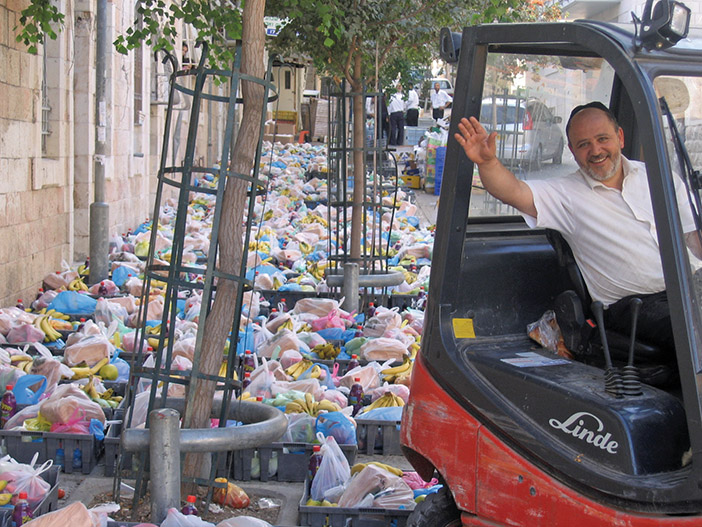

(Courtesy of Yad Ezra V’Shulamit) Pesach is a time when many people infuse their holiday preparations with meaningfulness—whether it be by making a conscious effort to “clean” their negative thoughts along with their kitchen cabinets or taking a minimalist approach to the week of Pesach to focus on the more spiritual aspects of the holiday. It’s a time when people go the extra mile to observe the customs of the holiday, including the centuries-old Maot Chitim.
While benevolence is something that Jews recognize as a pillar of our communities year-round, either in the form of donations or acts of kindness, on Pesach the obligation extends further, with a special mitzvah to not only provide means for those in need, but provide the ingredients (wheat) to prepare the special Pesach foods (matzah).
Although we no longer go out to the fields gathering wheat for the poor to have matzah, the tradition of remembering where we came from as hungry slaves and providing for those who are less fortunate than us is of utmost importance leading up to and throughout Pesach.
The custom of giving wheat teaches us the value of going the extra mile in our acts of kindness. By giving wheat to the poor we are bringing the food to them, reminding us of how we too were provided for in the desert.
Today there are still many who suffer from hunger. Yad Ezra V’Shulamit is at the forefront of efforts being made to rectify that situation. Each year, Yad Ezra V’Shulamit gives 23,000 food baskets to Jewish families in Israel who would otherwise not even be able to include lechem oni on their Pesach tables. Boxes include everything they need to fully celebrate the holiday that represents freedom, with matzah, grape juice, chicken, fruits, vegetables, canned goods and more.
The mitzvah of Maot Chitim begins at the beginning of the month. As we prepare our homes for Pesach, cleaning them and filling them with food, we are encouraged to give to all in need. If you live in a strong Jewish community, the opportunity to give is made easy by the many collectors who come door to door. But even those who are inclined to give to whoever is in need often find they are out of change, despite the many coins that may be dug up when cleaning. Additionally, it’s hard to keep track of your giving when you have so much to check off on your to-do list.
Luckily, we live in a time where age-old tradition has been combined with technology to assist in solving these common problems. The TzedakaApp is designed to replace cash donations to collectors and provides users with the ultimate donation experience. With TzedakaApp, giving is easier, safer and faster than ever. By simply downloading the app and following setup instructions you can easily transfer funds, track your giving, confirm the collector’s identity and receive a tax-deductible receipt. Users can manage and maximize their donations in the palm of their hand.
By engaging in the mitzvah of Maot Chitim you can attend your Seder this year with an extra helping of joy, knowing that the declaration of “Whoever is hungry, come and eat. Whoever is needy, come and celebrate Passover” is more than just words.
To learn more about Yad Ezra V’Shulamit’s work supporting the most vulnerable families in Israel or send a Pesach food basket see www.yadezra.net.
The TzedakaApp is now available for download. To learn more see www.tzedaka-app.com.










